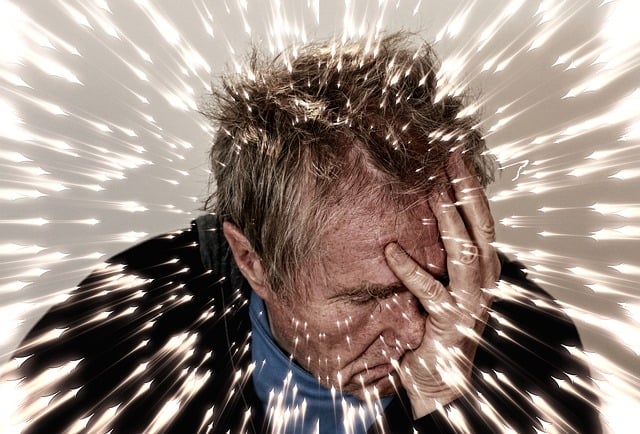Sexual abuse in eldercare settings often goes unnoticed, leading to significant physical and emotional trauma. Effective solutions include tailored therapy, mental wellness journaling, and coping skills development. Policy changes and public awareness campaigns are crucial to improving access to specialized support for these survivors, particularly in underserved communities. Tailored Cognitive Behavioral Therapy (CBT) sessions, group therapy, and community-driven initiatives empower elders to heal and develop long-lasting coping strategies. Mental wellness coaching and burnout prevention for caregivers further enhance the availability of consistent, compassionate care.
Mental health advocacy plays a pivotal role in supporting survivors of sexual abuse, especially among the elderly population. This article delves into the profound impact of such crimes on elders and highlights the significance of advocacy in fostering healing. We explore barriers that prevent older survivors from accessing therapy and present effective strategies to promote their recovery. Furthermore, community initiatives and long-term support resources are examined, offering valuable insights for those affected by this sensitive issue, particularly focusing on therapy for elders sexual abuse survivor well-being.
- Understanding the Impact of Sexual Abuse on Elders
- The Role of Mental Health Advocacy in Support
- Identifying Barriers to Accessing Therapy for Elder Survivors
- Effective Strategies for Promoting Healing and Recovery
- Community Initiatives and Resources for Long-Term Support
Understanding the Impact of Sexual Abuse on Elders

The impact of sexual abuse on elders is a critical aspect of mental health advocacy that often goes unnoticed. Elders, particularly those in care homes or with reduced mobility, are vulnerable to sexual exploitation and assault. The consequences for survivors can be profound, affecting their physical and emotional well-being, self-esteem, and overall mental wellness. Many older adults may struggle to speak out due to fear, shame, or a lack of understanding from caregivers and healthcare professionals about the unique challenges they face.
Therapy for elders sexual abuse survivors is essential in helping them process these traumatic experiences. Mental wellness journaling exercises and coping skills development can aid in healing and recovery. Guidance on navigating these sensitive issues and encouraging open conversations within care settings can significantly improve the lives of these survivors, fostering a sense of safety, validation, and mental resilience.
The Role of Mental Health Advocacy in Support

Mental health advocacy plays a pivotal role in supporting individuals who have experienced traumatic events such as sexual abuse, especially among elders who may face unique barriers to accessing care. Advocacy initiatives work to ensure that survivors receive not only necessary therapy but also tailored support that addresses their specific needs and challenges. By advocating for mental health services, these organizations push for policy changes that improve accessibility, affordability, and quality of care.
Moreover, effective advocacy incorporates aspects like mental health policy analysis, ensuring that practices align with evidence-based approaches. It also emphasizes cultural sensitivity in mental healthcare, recognizing the impact of cultural background on an individual’s experience and treatment outcomes. This holistic approach to advocacy fosters a more inclusive system that better supports survivors of sexual abuse, promoting their emotional regulation and overall well-being.
Identifying Barriers to Accessing Therapy for Elder Survivors

Many elder sexual abuse survivors face significant barriers when attempting to access therapy and essential trauma support services. These obstacles are often multifaceted and deeply intertwined with societal, institutional, and personal factors. One major hurdle is the stigma surrounding mental health issues, particularly among older adults, which can prevent them from seeking help. Additionally, financial constraints and a lack of accessible, specialized therapy options tailored for elder survivors can be daunting challenges, especially in rural or underserved communities.
Public awareness campaigns focused on normalizing conversations about trauma and self-care practices for seniors are crucial steps towards overcoming these barriers. Educating both survivors and their loved ones about available resources, such as community-based support groups and mental health hotlines, is essential. By fostering an environment of understanding and compassion, we can encourage elders to come forward and receive the necessary therapy for sexual abuse they deserve, promoting healing and improved quality of life.
Effective Strategies for Promoting Healing and Recovery

Healing and recovery for mental health advocates is a multifaceted approach, especially when addressing issues like sexual abuse among older survivors. One effective strategy involves integrating therapy sessions tailored to their unique needs and experiences. Cognitive Behavioral Therapy (CBT) has shown promising results in treating anxiety relief and trauma-related conditions, empowering individuals to develop inner strength. By fostering emotional intelligence, CBT equips survivors with coping mechanisms to navigate the complexities of their pasts.
Additionally, group therapy sessions create a supportive environment where elders can share their stories without judgment, fostering camaraderie and understanding. This collective experience can lead to profound insights, build resilience, and offer alternative perspectives on overcoming challenges. Such initiatives ensure that mental health advocates not only provide essential support but also contribute to the development of long-lasting coping strategies for recovery.
Community Initiatives and Resources for Long-Term Support

In many communities, initiatives focused on mental health advocacy have emerged to provide long-term support for individuals facing various challenges. These community efforts often include specialized programs tailored to specific needs, such as therapy for elders or sexual abuse survivors. By offering accessible resources and creating safe spaces, these initiatives foster a sense of belonging and empowerment among individuals seeking help.
One notable aspect is the integration of mental wellness coaching programs that go beyond traditional therapy. These programs emphasize personal development and conflict resolution techniques, enabling participants to build resilience and navigate life’s complexities. Additionally, healthcare providers are increasingly benefiting from burnout prevention strategies, ensuring they can offer consistent care without succumbing to occupational stress.
Mental health advocacy plays a pivotal role in supporting survivors of sexual abuse, especially among elders. By understanding the unique impact of such trauma and identifying barriers to accessing therapy, we can develop effective strategies to promote healing. Community initiatives and dedicated resources are essential for providing long-term support to elder survivors, ensuring they receive the necessary care and respect their right to recovery. It’s crucial to continue these efforts to create a more inclusive and supportive environment, specifically tailored to address the needs of therapy for elders sexual abuse survivors.








